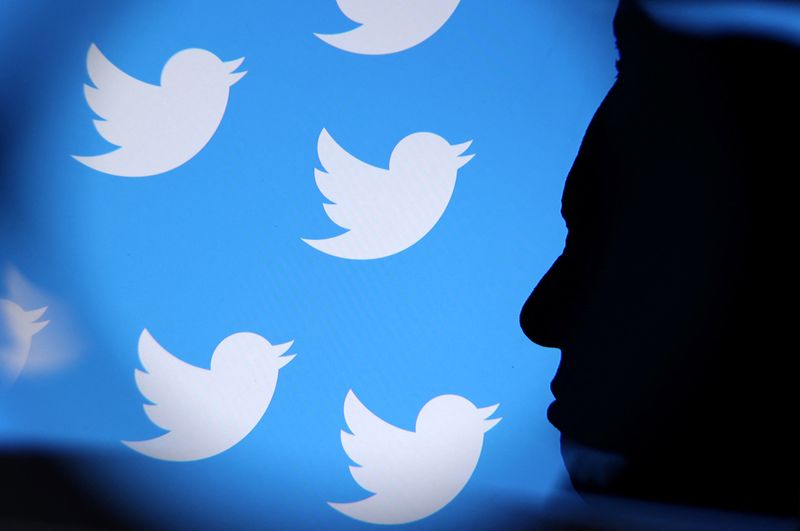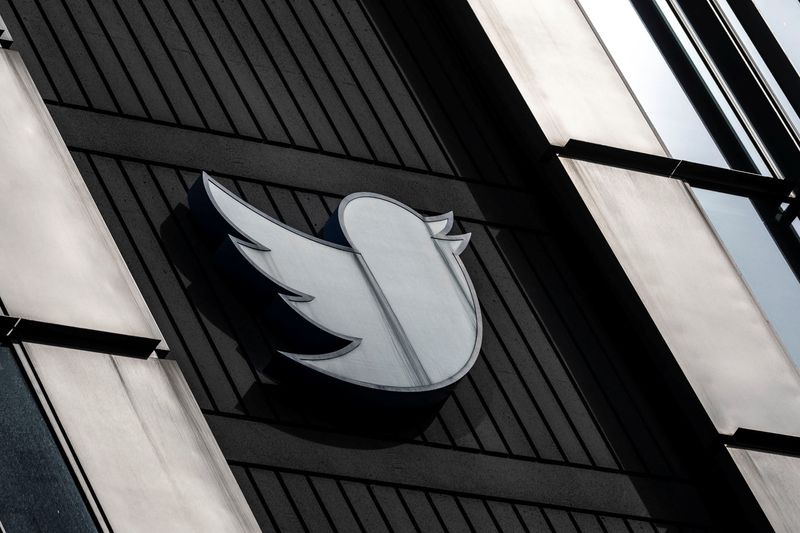By Katie Paul and Sheila Dang
(Reuters) - Election experts reported the spread of new falsehoods across Twitter and other social media services on Tuesday as Americans voted in midterm elections, four days after Twitter Inc (NYSE:TWTR) fired half its staff and new owner Elon Musk tweeted a recommendation to vote for Republican candidates.
The nonpartisan watchdog group Common Cause, which monitors social media for voter suppression efforts, said that Twitter took no action on high-profile posts that the organization flagged on Tuesday as problematic.
The U.S. congressional elections posed a fresh test for social media companies, which for years have struggled to balance free expression against amplifying potentially harmful commentary. Though company policies enable them to restrict misinformation, enforcement has been spotty, and the recent upheaval at Twitter has put it under particular scrutiny.
Voices on the right sought on social media on Tuesday to falsely blame Democrats for voting glitches reported in some places.
Common Cause said Twitter posts from Republican candidates Marjorie Taylor Greene and Kari Lake should have included warning labels under the company's civic integrity policy, which governs misleading tweets about elections. Posts by Greene and Lake drew tens of thousands of likes and retweets on Twitter.
Common Cause also noted a "big slowdown" in Twitter's response time since Friday, when layoffs gutted many of the company's teams responsible for elevating credible information.
"Twitter is hopeless and not responding beyond replying that they are looking into something and then going dark on it for days," the group said, noting that the company's response time was normally about one to three hours.
Twitter, which lost many members of its communications team in the layoffs, did not respond to requests for comment.
Before Tuesday, both Musk and Twitter's head of safety and integrity Yoel Roth tweeted that the company would uphold and enforce its election integrity policies through the midterms.
More than 120 advocacy organizations including Common Cause in May urged - without success - social media companies to introduce "circuit breakers" to curtail the rapid spread of misleading election information by popular accounts.
Discussion on Twitter on Tuesday focused on real voting problems in states with closely watched races such as Arizona, Georgia, Michigan and Pennsylvania, according to research groups studying online election information.
The activity surged after popular commentators on Twitter attributed the malfunctions - without providing evidence - to attempts by Democrats to suppress Republican voters, according to the Election Integrity Partnership, a coalition of research outfits.
Former U.S. President Donald Trump, who has made false claims that the 2020 presidential election was stolen from him through widespread voting fraud, posted on his social media app Truth Social that the issues in some states amounted to a fresh round of deliberate misbehavior.
Election officials in Arizona's Maricopa County said that the issues experienced on Tuesday would not affect vote counting. Officials in Pennsylvania's Luzerne County extended voting hours to compensate for the problems.
After officials in Georgia's Cobb County extended the deadline for receipt of absentee ballots because some voters did not receive ballots, false claims spread - mainly on Twitter - that the extension was meant to help "steal" the election, according to a spokesperson at the Southern Poverty Law Center activist group.

Also drawing engagement were posts baselessly warning voters that Wi-Fi networks at polling locations could enable hacking of voting machines, Jesse Littlewood, vice president for campaigns at Common Cause, told a news briefing.
The falsehoods appeared to originate on messaging app Telegram before spreading to more mainstream social media services, according to Common Cause. A Reuters review found examples on Twitter, TikTok and Meta's Facebook (NASDAQ:META).
